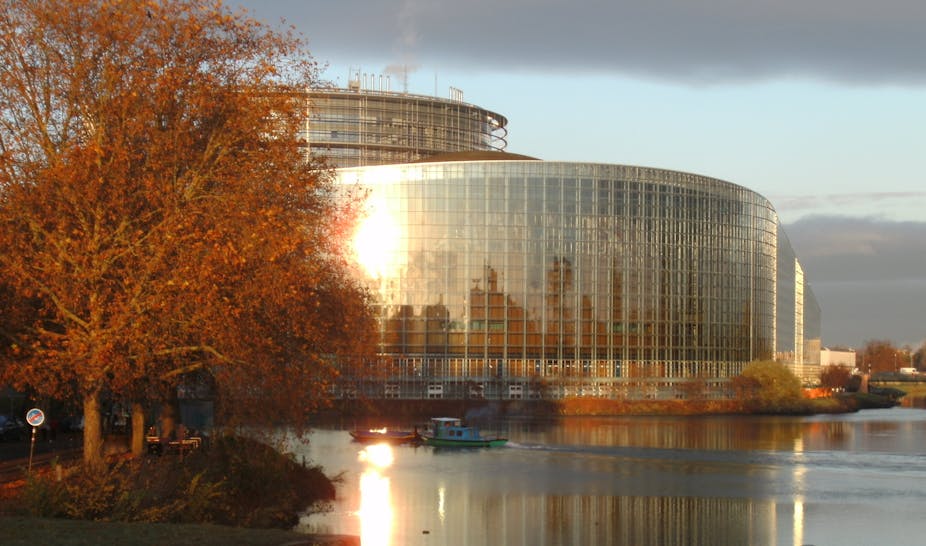Europe is about to experience a hectic start to the political season. It has more problems on its hands than at any time in recent memory.
The eurozone crisis created difficulties in 2009-2013, but they came in waves. Autumn 2016 brings three major challenges that all need attention at the same time. The aftermath of the Brexit vote, the migration crisis and discontent among some of the remaining EU member states are all problems that threaten to destabilise the union.
Add to these the prospect of a rudderless Spain, where various attempts to form a government over eight months have failed, and the coming presidential elections in France, where Marine Le Pen, leader of the far-right National Front, leads in many polls.
This is certain to be, at best, a difficult few months for the EU. At worst it could be the start of splintered Europe, with a number of new member states calling for a total re-think of the responsibilities of EU institutions.
Head in the sand
Europe has, so far, done a very bad job of dealing with Britain’s vote to leave. At first, Jean-Claude Juncker, president of the European Commission, insisted Brexit negotiations should begin immediately. He was snubbed by the British and unceremoniously told to pipe down by other EU member states. One senior EU official said Juncker “wanted Britain to leave the parking lot before setting the navigation system”.
The European Council was charged with handling the politics and public relations of the separation. Just when things returned to normal, Michel Barnier, who barely speaks English and is known for unfriendly relations with the City of London, was appointed chief Brexit negotiator.
We know by now that Brexit is going to be a drawn-out affair and that many people in the EU want as amicable a divorce as possible, which leaves lots of options on the table. What we don’t know, however, is how important Barnier will be or whether the process will ultimately be handled by Germany, just as many of the eurozone crisis decisions were.
Most of all, we don’t know what the new British government has in mind as a successful outcome. It is clear, however, that utmost care is needed – something that European institutions have yet to show.
Neighbourhood watch
The second thorny challenge is migration. Turkey is the EU’s most important partner in dealing with this problem but its behaviour has been erratic of late. The Turkish government agreed in May to help stem the immigration flow in return for visa-free travel for its citizens. But the recent failed coup has thrown the deal into turmoil.
President Recep Tayyip Erdoğan has imprisoned tens of thousands of alleged coup plotters in recent weeks. With the flagrant violations of human rights going on in Turkey, visa-free travel hardly seems feasible any more. And Turkey does not seem to be the safe destination for refugees it once was.

That said, Turkey is currently sheltering around twice as many refugees as the number who entered Europe in 2015. Erdoğan could, if he wanted, toy with European leaders by opening the border temporarily to ramp up the stakes. He already threatened as much in February, before the coup. If he sees through on the threat, it’s not clear how Europe would respond.
Eastern European heads of state have already called for a joint European army and border police – and Berlin and Brussels were quick to respond. In his September State of the Union Address Juncker appeared to acquiesce to the demand.
Reputation management
The third challenge is to restore the European Commission’s reputation after its poor handling of both Brexit and migration.
There are increasingly vocal complaints coming from Eastern Europe about the failure of Brussels to manage crises and calls for Juncker to resign. Several countries, mostly from Central Europe, have asked for powers to be shifted away from Juncker’s commission and handed to the European Council of national leaders.
It looks like Juncker will survive this storm but that his status will be weakened by it. The fact that Merkel, and not he, was meeting with heads of state to discuss Brexit and immigration shows how little the political elite trusts him.
Beyond his own failings, however, lie the apparent weaknesses in the Commission itself. It was slow to deal with the eurozone crisis, with the result of prolonged economic recession in Greece and high youth unemployment in most of southern Europe. The main lessons from this poor performance have not been learnt and the weakenesses continue to manifest themselves.
To recover from its current crises, the EU needs to take action. That means listening to Eastern Europe about protecting its external borders and investing more money in joint border control and in dealing with the root causes of the refugee flow.
And when it comes to Brexit negotiations, the task must be entrusted to politicians who truly believe in an amicable solution and are not after revenge. Finally, to re-energise and regain the trust of member states, the European Commission has to make real progress on important projects, such as a banking union, energy union and a single digital market.
More than just tinkering is needed if the union is to survive the difficult months ahead.

